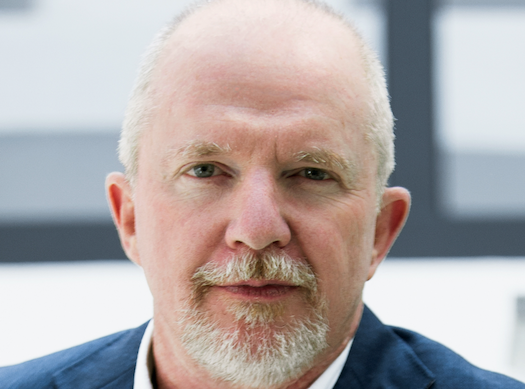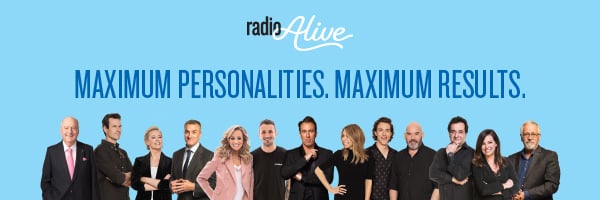Comment from Wayne Clouten
I will declare up-front that I was among the first to advise radio stations to get into Social Media as part of their listener relationship marketing tactics. 12 years down the track Social Media is still an incredibly useful tool but you must be very careful about how you interpret and react to your Social Media noise.
I will try to avoid treading the same ground as what Peter Saxon did in his very good article about Info Wars – Democracy Losing Badly. Instead I will address the increasing divergence between the noise of Social Media and what the silent majority actually think and what this means to the level of trust people have in Social Media. Importantly I will seek to paint a picture of what it all means for those of us in radio.
like a black hole; Social Media distorts the space around it
This divergence is mainly to do with negative sentiments rather than positive sentiment. When you look at representative market research data relative to positive sentiment and compare it to the Social Media narrative there is a lot of convergence, however when you drill into negative subject matter on Social Media such as opinion about a person or something controversial, you often see a massive disconnect between the Social Media narrative and the opinion of the general market.
Why is this?
The challenge with attempting to understand the effect of Social Media on human behaviour is that like a black hole; Social Media distorts the space around it. Social Media has unleashed forces which we still don’t completely understand, and the journey is far from over.
Certainly, part of the problem is that Social Media has given voice to extremism, opportunism, thoughtless observation and malicious narrative in a way that did not exist before. There was a time in the past when a misunderstanding or thought driven by anger might be filtered through talking to a friend at the pub or around the dinner table with family before you shot your mouth off publicly. If you were really wound up about something people normally did some research to get at least some of their facts right.
In effect, before Social Media there was more due process prior to the broadcast of what people thought and wanted to say. When they did wish to broadcast their opinion it was usually in the form of a letter to the editor of a Newspaper or calling a talk-back radio station. Even then, an editor or producer would not print or broadcast something which was clearly incorrect or absurd without some form of counter argument or challenge. It wasn’t perfect but there was a semblance of quality control to public discourse. Social Media changed that.
Unfortunately mainstream media often provides credibility to what is broadcast on Social Media
The other problem Social Media has is content. Social Media content is generally valued by how much something can be shared or liked or tagged rather than the intrinsic value or accuracy of the content itself. Often what is shared or liked the most is nonsense. The very nature of Social Media, particularly Facebook where personal settings or Facebook algorithms progressively filters out what people may not particularly agree with or like can lead to people surrounding themselves with content that only delivers a view of the World they agree with. This tunnelled vision creates a raft of inter-personal and reactionary consequences that can lead to problems.
Unfortunately mainstream media often provides credibility to what is broadcast on Social Media, this is particularly evident in newspapers where journalists are given to underlining the significance of something they wish to beat up by using phrases like, “such and such has caused a social media storm” or my personal favourite where the twitter comment of a few unknown people are used to suggest what the general public are thinking.
Another significant problem for Social Media is that some very nasty and disingenuous people are using it. These people use Social Media to broadcast their view of the world and to attack anyone and anything that does not fit their view of the world. Social Media has been weaponised and the more it is used as a weapon or to spread untruths, the more reasonable people will pull away from it and that ultimately is the larger, long term challenge for Social Media.
So where is Social Media headed?
It is hard to imagine how Social Media can be put back on the egalitarian trajectory everyone hoped it would have. The Facebook brand is damaged, and it seems that every week we hear about some new revelation concerning the way our data is used and abused by the tech giants. The more we learn about how foreign agencies and social influencers seek to manipulate our opinions and our view of reality via Social Media, the more people will come to hold Social Media at a distance, distrusting the content it provides and rejecting its invitation to participate.
The key issue at stake is trust and Social Media has dropped that gauntlet big time
Social Media will most certainly survive however the likely outcome is that it will devolve into source of curiosity rather than a force for truth and transparency. The key issue at stake is trust and Social Media has dropped that gauntlet big time.
Here lies the opportunity for mainstream media, particularly radio. Radio was the original and best Social Media and has historically commanded a high degree of respect and trust amongst the communities it serves. It is important for the radio industry not to forget that. It is opportune for radio to take advantage of the cracks forming in the veneer of Social Media and re-assert itself as the medium you can trust that delivers real people, communicating in real time to local communities.
Should radio stations abandon Social Media? Absolutely not. Social Media is here to stay and you have to be in it. The only debate is how it will shape over time and where people will position it in their usage hierarchy. The message right now is to avoid leveraging too much of your content and marketing against it. Know it is an important channel to your listeners and potential listeners but use it wisely not blindly. Focus on content which is unique to your brand and redirect as much of your listener interaction as you can onto your own apps and within your own communities. Rather than funnelling to Facebook, funnel from Facebook. Realise that Facebook is Mark Zuckerberg’s business model, not yours and all will be fine…well…as fine as it can be.
About the Author
Wayne Clouten is a principal shareholder of Broadcast Programming & Research with global experience in the development of research driven radio programming and marketing strategies. Wayne pioneered the concept of Listener Relationship Marketing (LRM) and has assisted both radio and multimedia companies in the development of their digital content and marketing strategies in markets such as the United Kingdom, Germany, Austria, Russia, Finland & Australasia.



